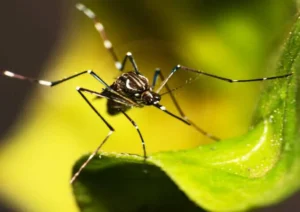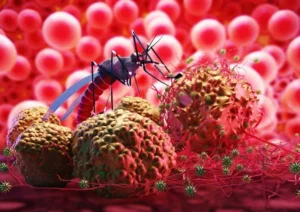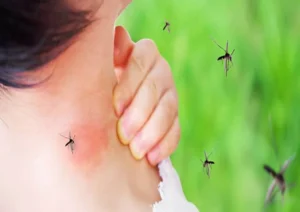Understanding Dengue Fever:
Symptoms, Prevention, and Treatment
What Is Dengue Fever?
Dengue fever is a mosquito-borne viral infection that poses a significant health risk in tropical and subtropical regions.
Caused by the dengue virus (DENV), it is transmitted primarily by Aedes aegypti mosquitoes.
The World Health Organization (WHO) estimates that around 390 million dengue infections occur annually,
with severe cases leading to dengue hemorrhagic fever or dengue shock syndrome, which can be fatal.
Symptoms of Dengue Fever
Dengue symptoms typically appear 4–10 days after being bitten by an infected mosquito. Common signs include:
High fever (104°F or 40°C)
Severe headache
Pain behind the eyes
Muscle and joint pain (often called “breakbone fever”)
Nausea and vomiting
Swollen glands
Skin rash
In severe cases, symptoms may progress to:
Persistent vomiting
Bleeding from gums or nose
Blood in urine or stool
Difficulty breathing
If these severe symptoms appear, immediate medical attention is crucial.
How Dengue Spreads

Dengue is transmitted through the bite of an infected Aedes mosquito,
which typically bites during the day.
Unlike malaria-carrying mosquitoes, Aedes aegypti thrives in urban areas
and breeds in stagnant water (e.g.,
flower pots, discarded tires, uncovered water containers).
Risk Factors for Dengue Fever
Living or traveling to tropical regions (Southeast Asia, Latin America, Africa)
Previous dengue infection (increases risk of severe symptoms)
Poor mosquito control in residential areas
Diagnosis and Treatment
Diagnosis
Doctors diagnose dengue through:
Blood tests (detecting virus or antibodies)
Physical examination (checking symptoms)
Treatment
There is no specific antiviral treatment for dengue. Management focuses on relieving symptoms:
Stay hydrated (oral rehydration or IV fluids in severe cases)
Use acetaminophen (avoid aspirin/ibuprofen to prevent bleeding)
Rest and monitor symptoms
Severe cases may require hospitalization for blood transfusion or intensive care.
Preventing Dengue Fever
1. Eliminate Mosquito Breeding Sites
Remove stagnant water in containers
Cover water storage tanks
Clean gutters and drains regularly
2. Personal Protection
Use mosquito repellent (DEET, picaridin)
Wear long-sleeved clothing
Install window/door screens
Sleep under mosquito nets
3. Community Efforts
Fogging/spraying insecticides in outbreak areas
Public awareness campaigns on dengue prevention
4. Dengue Vaccine
The Dengvaxia vaccine is available in some countries but is recommended only for those with prior dengue exposure due to risks in first-time infections.
Global Impact of Dengue Fever
Dengue is a growing public health concern, with outbreaks increasing due to climate change, urbanization, and international travel.
Countries like Brazil, India, and the Philippines report high cases annually. Prevention remains the best strategy to combat this disease.
Conclusion
Dengue fever is a serious but preventable disease. Recognizing symptoms early,
seeking prompt treatment, and taking preventive measures can reduce infection risks.
By eliminating mosquito breeding sites and protecting yourself from bites, you can help curb dengue’s spread. Stay informed, stay safe.
HOSTINGER HOSTING PLAN DISCOUNT CODE


Thanks for sharing excellent informations. Your web site is so cool. I’m impressed by the details that you have on this blog. It reveals how nicely you perceive this subject. Bookmarked this website page, will come back for more articles. You, my pal, ROCK! I found just the information I already searched everywhere and just could not come across. What an ideal site.
Cần link 188bet mới nhất hả? Link188betmoinhat là chuẩn bài rồi! Chơi mượt mà, không lo bị chặn. Anh em vào chiến thôi! Check out link188betmoinhat
Honestly, nilfortuneonline surprised me. The interface is clean and modern, and I’ve been having some good luck there. Give it a look-see! nilfortuneonline
Valorbetcasino… haven’t heard much about this one, but I gave it a go the other day. Looks pretty solid, good range of games and decent bonuses. Give it a shot if you’re feeling lucky. Check out Valorbetcasino here: valorbetcasino
Heard some buzz about royalxcasinogame. Haven’t played myself yet, but my buddy swears it’s legit. Might be worth a peek if you’re feeling lucky. See for yourself: royalxcasinogame